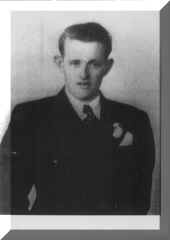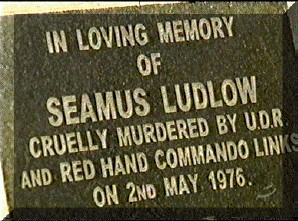The Murder of Seamus Ludlow in County Louth, May 1976. Towards a public inquiry?



The Murder of Seamus Ludlow in County Louth, May 1976. Towards a public inquiry?
|
|
Introduction to the murder of Seamus Ludlow and the official cover-up. Michael Cunningham investigation - 1978 The recent Campaign for Truth and Justice. Irish Victims Commission Report. Ludlow family's questions for the RUC (now the PSNI). Jim J. Kane's letter to the N I Human Rights Commission. Jim J. Kane's letter to the RUC Ludlow Family Letter to Bertie Ahern Other Ludlow Family Sites. |
The Irish Examiner, 16 September 2000: Civil liberties group calls for ombudsman to police gardaí
THE Government’s calls for public enquiries into police activities in Northern Ireland is in sharp contrast to their attitude to the gardaí, the Irish Council for Civil Liberties complained last night. ICCL director, Donnchada O’Connell, called on the Irish Government to establish a police ombudsman similar to the new post established in Northern Ireland. The police ombudsman for Northern Ireland, Nuala O’Loan, said yesterday a complaints procedure, totally independent of the RUC, will be in place by November. She promised that a team of independent investigators — recruited from across the world — will be in place within weeks to probe complaints against officers. Mr O’Connell said it is ironic that the Irish Government continues to exert pressure for greater police accountability in Northern Ireland while doggedly resisting such measures in this jurisdiction. “It would be great if the same enthusiasm which they display for public inquiries into atrocities which took place in Northern Ireland was shown for inquiries into controversies in their own back yard. I am thinking here of the Séamus Ludlow case, and the recent case of John Carthy. “Of course they are right to demand such inquiries, but their credibility must surely be tainted by the fact that a double standard applies in this part of Ireland,” he said. A spokesman for the Department of Justice said that a wide ranging review of the Garda Síochána Complaints Act 1986 is under way. However, he pointed out that while the Garda Complaints Board has made a number of recommendations to improve its activities, it has not called for an ombudsman. Making
his case for a police ombudsman, Mr O’Connell said: “Ireland has been sharply criticised on various occasions by the European Committee for the Prevention of Torture and the UN Human Rights Committee for the lack of independence and transparency of the Garda Síochána Complaints Board. The 1986 legislation which established that system has never worked, and it is doubtful if it was ever intended to work,” he said. Mr O’Connell says that in light of plans by Justice Minister, John O’Donoghue, to introduce wide ranging police powers in a Criminal Justice Bill, the role of a police ombudsman will be crucial. Mr O’Connell said the new powers make provision for extended detention; further incursions on the right to silence; the re classification of saliva as a non intimate body sample with provision for reasonable force to be used to obtain such samples; and the power to issue search warrants without judicial supervision. “Who does he think he is kidding if he believes the public will tolerate such normalised Draconianism without meaningful concessions on the police accountability side?” he asked. Mr O’Connell said he was encouraged by the plans by Labour Justice spokesman, Brendan Howlin, to introduce a private members bill for the establishment of a police ombudsman. “It
is to be hoped that they will follow through on this commitment if returned to
Government,” he added.
© Irish Examiner, 2000 I Homepage I I Top I I Press Coverage I |